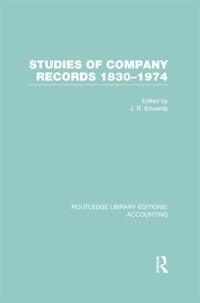

A firm uses corn as an input into their production of ethanol. You require 1 bushel of corn to produce one gallon of ethanol. Each gallon of ethanol sells for $4. Fixed costs are $12, and you can produce and sell 10 gallons of ethanol this year. Corporate taxes on profits follow a progressive pattern, and are as follows: Tax Bracket First $4 of pre-tax profit Next $6 of pre-tax profit Next $8 of pre-tax profit Pre-tax profit greater than $18 Tax rate 10% 15% 40% 50% For illustrative purposes, assume that all cash flows occur at the end of the year (ie, assume that all corn is purchased and ethanal produced and sold at the end of the year). This way, there is no adjustment for time value of money required to calculate profit. a) If all of the above assumptions hold, what is the price of corn for which profits are maximized? Calculate the maximum profit you can earn. [8 Marks] Suppose that the price of corn will follow the following distribution one year from now! Corn Price 1.00 2.00 3.00 Probability 0.25 0.25 0.25 4.50 The following one-year call options are available on the price of corn. The tisk free rate is 5% compounded continuously: Strike Price 1.50 Call Premium 1.24 0.85 2.00 2.50 0.55 The one year forward price of corn is 2.79 per bushel. b) Given the information above, list at least 7 of the possible hedging strategies that you can use to hedge against adverse fluctuations the price of corn i.e. possible combinations of derivatives above that apply). No calculations are required for this question, you're answer should be a list. HINT: there are 10 in total. [7 Marks. 3 bonus marks if you can name all 101 c) Calculate the expected unhedged after-tax profit on the production and sale of corn. [4 Marks) d) Calculate the expected after-tax profit for all possible hedging strategies that you listed in part b. State which hedging strategy results in the highest expected profit. [20 Marks] e) Explain why reducing earnings volatility in a progressive tax environment can improve expected after-tax profit. [4 Marks] A firm uses corn as an input into their production of ethanol. You require 1 bushel of corn to produce one gallon of ethanol. Each gallon of ethanol sells for $4. Fixed costs are $12, and you can produce and sell 10 gallons of ethanol this year. Corporate taxes on profits follow a progressive pattern, and are as follows: Tax Bracket First $4 of pre-tax profit Next $6 of pre-tax profit Next $8 of pre-tax profit Pre-tax profit greater than $18 Tax rate 10% 15% 40% 50% For illustrative purposes, assume that all cash flows occur at the end of the year (ie, assume that all corn is purchased and ethanal produced and sold at the end of the year). This way, there is no adjustment for time value of money required to calculate profit. a) If all of the above assumptions hold, what is the price of corn for which profits are maximized? Calculate the maximum profit you can earn. [8 Marks] Suppose that the price of corn will follow the following distribution one year from now! Corn Price 1.00 2.00 3.00 Probability 0.25 0.25 0.25 4.50 The following one-year call options are available on the price of corn. The tisk free rate is 5% compounded continuously: Strike Price 1.50 Call Premium 1.24 0.85 2.00 2.50 0.55 The one year forward price of corn is 2.79 per bushel. b) Given the information above, list at least 7 of the possible hedging strategies that you can use to hedge against adverse fluctuations the price of corn i.e. possible combinations of derivatives above that apply). No calculations are required for this question, you're answer should be a list. HINT: there are 10 in total. [7 Marks. 3 bonus marks if you can name all 101 c) Calculate the expected unhedged after-tax profit on the production and sale of corn. [4 Marks) d) Calculate the expected after-tax profit for all possible hedging strategies that you listed in part b. State which hedging strategy results in the highest expected profit. [20 Marks] e) Explain why reducing earnings volatility in a progressive tax environment can improve expected after-tax profit. [4 Marks]








